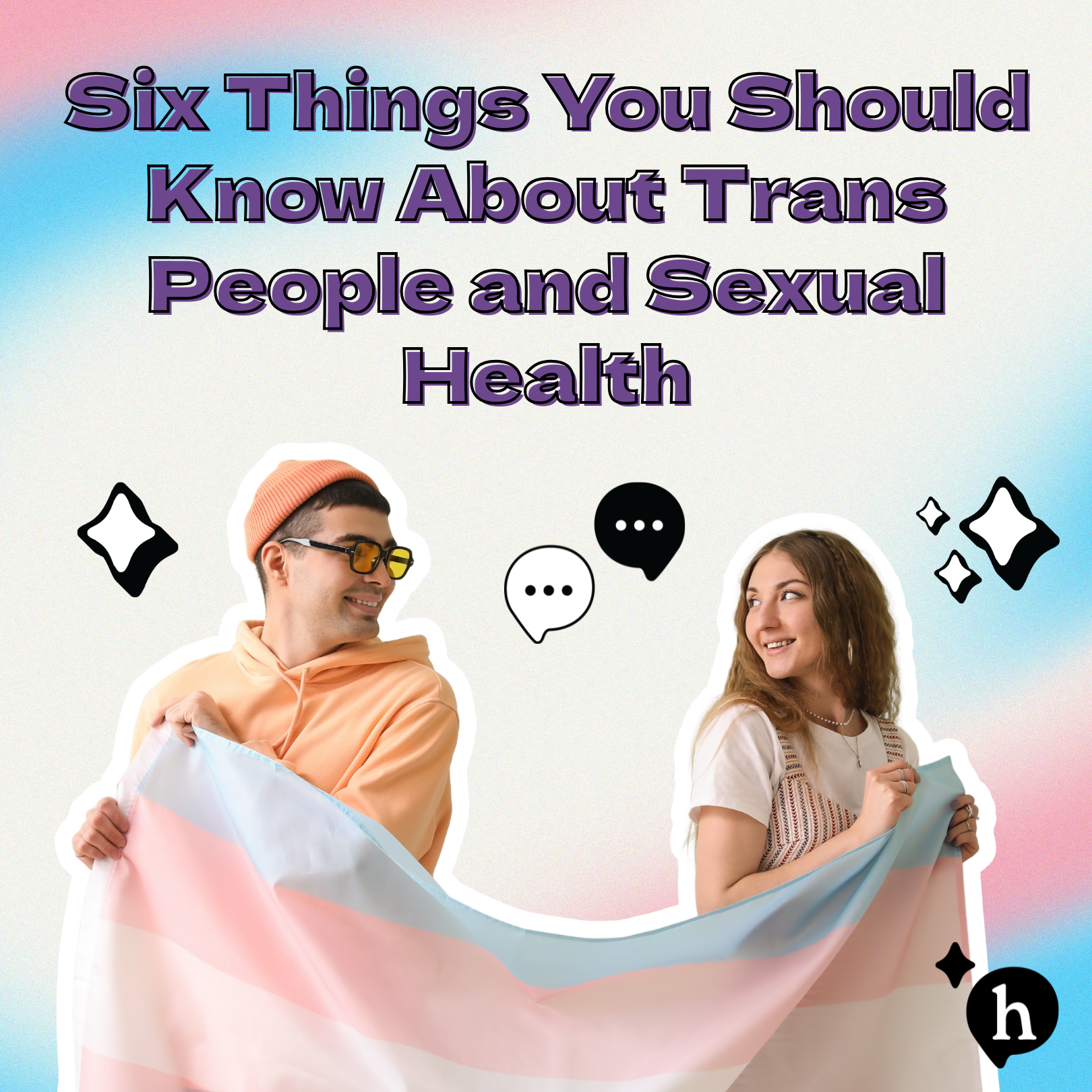Sex ed, the way most of us got it, wasn’t made for trans people. It centers cisgender bodies, cisgender experiences, and cisgender relationships, leaving everyone else to figure it out on their own.
When we leave trans people out of conversations about consent, safety, pregnancy, and pleasure, we are failing to protect one of our most vulnerable populations. No one should be expected to make informed decisions without information that reflects their reality.
Whether you’re a parent, peer, partner, healthcare provider, or just a person who cares about others, here are six things you need to know about sexual health and trans people.
1. Hormone replacement therapy is not birth control.
This is one of the most common and most harmful misconceptions.
Testosterone often causes periods to stop, which leads many people to believe it prevents pregnancy. But that’s not how it works. People with a uterus who are taking testosterone can still ovulate, even if they no longer menstruate. That means pregnancy is still possible if they’re having sex that involves sperm. The same applies for people who produce sperm and take estrogen: it is unpredictable how someone’s sperm count will change while they are using it.
Even healthcare providers and educators sometimes get this wrong, and the result is that young trans people are often left without essential pregnancy prevention information. Everyone deserves access to the full picture of what their body can do and how to protect it.
2. Pregnancy can go undetected longer on testosterone.
Since many people on testosterone stop menstruating, they lose a major indicator of early pregnancy. Without a regular cycle, there may be no obvious signs something has changed, making it easy for a pregnancy to go unnoticed. The myth that people on HRT are not fertile only worsens this, as it may lead someone to believe they can’t get pregnant or don’t need to take pregnancy tests regularly.
That can lead to late discoveries, missed options, and serious medical risks. On top of that, continuing to take testosterone during pregnancy can cause significant birth defects, stillbirth, and other traumatizing effects.
3. Most sex ed doesn’t reflect trans bodies or experiences.
If sex ed only teaches that girls get pregnant and boys get people pregnant, it fails everyone who doesn’t fit neatly into those roles. It erases the experiences of trans, nonbinary, and intersex people and leaves them without practical knowledge about their bodies.
Sex education should talk about who can get pregnant, who can produce sperm, how different bodies work outside of the traditional sex binary, and what safe, consensual intimacy can look like for everyone.
It’s not enough to say “all are welcome” if the content doesn’t reflect all bodies.
4. Hormones and surgeries change things, but don’t eliminate the need for sexual health education.
Puberty blockers, testosterone, estrogen, and gender-affirming surgeries all have real effects on sexual function, fertility, and risk, but none of them make sexual health conversations irrelevant.
People on hormones may still need birth control. People who’ve had surgery still need STI testing. Trans people still experience desire, pleasure, curiosity, and questions, and they deserve education that meets them where they are.
The body changes that come with gender-affirming care only make inclusive, body-aware sex ed more important.
5. Trans youth are already navigating this, and they’re often doing it alone.
Trans youth are forming relationships, asking questions, exploring their identities, and trying to understand their bodies. Just like everyone else.
But unlike their cisgender peers, they’re often doing that with fewer resources, more stigma, and less support. If they don’t get real answers from adults who care, they’ll turn to the internet, peers, or riskier sources to fill in the gaps.
Withholding inclusive sexual health education doesn’t protect trans youth, it isolates them. Everyone deserves to understand their body and how to take care of it. No one should have to piece it together alone.
6. You don’t have to be an expert. You just have to show up.
You don’t need to be an endocrinologist or have a degree in gender studies to care about trans health. You just have to be willing to unlearn what you thought you knew, stay open to new information, and make sure the conversations you’re having (or avoiding) aren’t leaving people behind.
Start by using inclusive language. Stay curious instead of defensive. And when someone tells you what they need to feel safe or seen, believe them.
Trans people, especially youth, deserve more than being an afterthought in someone else’s lesson plan or training manual. They deserve to be centered in conversations about health, safety, and care.
The bottom line:
- Hormones don’t replace birth control.
- Pregnancy is still possible, harder to detect, and risky.
- Sex ed that excludes trans people isn’t neutral; it’s harmful.
- Bodies on hormones still need information, resources, and care.
- Trans youth already have questions. They need us to show up with answers.
- If you work in sexual health or have a trans loved one, this should matter to you.
Want to learn more or join a training? Visit our Eventbrite page for upcoming, inclusive workshops and resources about sexual health.

